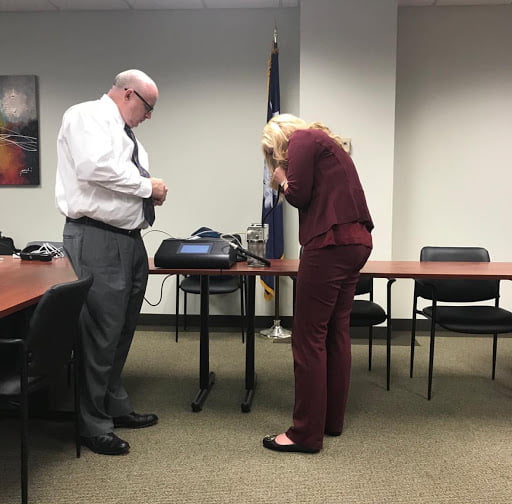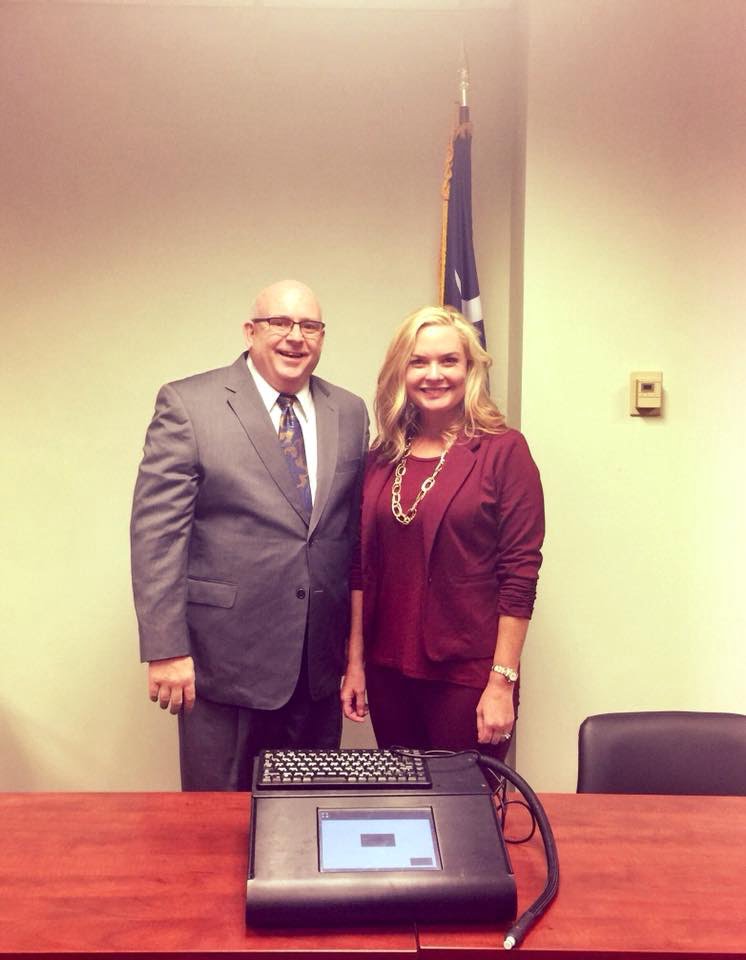Getting arrested for DUI in South Carolina can be a scary time for someone. The court date may be rapidly approaching and you may not know what is going to happen before, during or after the court date.
You may think that hiring a lawyer will somehow make your case worse because you are trying to fight the case. However, this is not true. An attorney that handles DUI cases may advise you of your defenses.
At a minimum you need to know what the collateral consequences of a DUI are, such as license suspension, expungement eligibility, ignition interlock devices, vehicle insurance hikes, and completion of mandatory substance abuse programs.
Common Breathalyzer Questions in South Carolina
If you were asked to take a breathalyzer after being pulled over, you probably have at least a few questions. There are so many ways your situation can go, but knowing everything you can about breathalyzers in South Carolina is a good place to start.
If you don’t see the answer to your question here, please don’t hesitate to contact me so we can discuss your question personally.
1. What is a breathalyzer test?
A breathalyzer is actually a name brand of a machine, but for the purposes of this article we are going to refer to the test as a breathalyzer (much like you would refer to a facial tissue as a “Kleenex”). A breathalyzer is a machine that measures alcohol in your body. The breathalyzer machine perceives the breath flow rate that cannot be seen by the naked eye.
The inner workings of the machine are complex, but basically when someone blows air into the machine, the machine provides audible clues about the air flow rate provided by a person. Assuming the person provides the minimum air flow (you will hear a solid tone on the machine), air travels through a chamber in the machine, and results in a perceived blood alcohol concentration (BAC) amount. You will hear a “click” from the machine once the process is complete. Your attorney should be familiar with this scientific process, or at least have a general understanding and know when to contact an expert to explain the process and any errors the machine made.
The BAC amount or number is what you usually hear people talk about when they say something like “I blew a point one one (.11).”
A breathalyzer test is different from field sobriety tests administered on the side of the road during a DUI arrest. Even if you take the Field Sobriety Tests, you are not excused from the implied consent law in SC. This article explains implied consent in further detail below.
Keep in mind the breathalyzer is to help measure breath alcohol, so if the arresting officer believes you are impaired by some other substance than alcohol, you could still be subject to other types of tests, such as a blood or urine test (depending on the situation). In SC you can be impaired by alcohol, other substances or a combination of both.
2. How do breathalyzers work?
Breathalyzers are meant to measure the amount of blood alcohol in your system. In order to work, breathalyzers must be accurately calibrated. Your lawyer can obtain the records of the exact breathalyzer machine that you used to determine if the machine was working properly.
Each breathalyzer machine in SC is regulated by the SC Law Enforcement Division (SLED). Each breath test site has a camera that should be recording the observation period before the person decides whether they will take the test.
Each DUI arrest at the breath test site has a unique subject ID and password associated with it. You would use this subject ID and password listed on a document you should have received after your arrest. When prompted on the SLED website (www.sled.sc.gov) go to the Implied Consent section. When prompted, you will enter your email address, subject ID and password, and the video will be emailed to you. The Field Sobriety Tests, roadside video or the body cam footage will not be included in this video; your attorney can request and obtain that additional footage.
Every single breath test site breathalyzer machine in the state of SC has a unique code (numbers and letters) that specifically identifies the machine. Each machine has maintenance and calibration records, temperatures of the solutions used in these machines, and expiration dates of service. The machines must be maintained properly and operated only by licensed, certified operators.
If the attorney identifies problems with these records, he or she can challenge this in court. Many people do not realize an attorney may help them in this way. Much of what an attorney does to prepare for a DUI court date is done behind the scenes. Obtaining and carefully reviewing the calibration and service records of the machine is a good example.
Attorney Susan Williams has successfully completed a continuing legal education class by respected DUI attorney Charles Rathburn that was devoted entirely to the Datamaster machine. At the class, she gave a breath sample and learned the ins and outs of how the machine works.

In addition to completing the class, she has twice completed a “wet lab.” In this controlled setting, law enforcement officers use volunteers to practice administering the breathalyzer and field sobriety tests. These were great opportunities for her to learn first hand in a way other than a textbook or case law how the breathalyzer machine works and what her clients may experience when doing the test.

3. Can I refuse a breathalyzer in SC?
Yes, but there will be consequences.
When you sign your name to get your Driver’s License at the SC DMV, you are giving your “implied consent” to follow the rules of the roads in SC. You are implying that you give your consent to take the breathalyzer.
Some people are reading this article and finding this out for the first time. At age 15, when I got my driver’s permit, I definitely didn’t realize that I gave my implied consent to take chemical tests. But still, if you refuse the breathalyzer, there are consequences.
You can request your own, independent test at the time of your arrest. Most people don’t realize this, and it’s not 100% clear from the reading of the Implied Consent rights warnings that are mandated to be read to you, but this is 100% true. You absolutely can request your own, independant test to be performed at your expense at the time of your arrest. If you request this substantial assistance, the officer must make arrangements for this test to be conducted.
Clients often ask me whether I recommend refusing the breathalyzer test. I tell them it depends on your circumstances because there are pros and cons to both.
Pros of Refusal:
There are circumstances when it may be beneficial for you to refuse the breathalyzer test. If you feel there is any possibility at all that you will register more than 0.00% on the breathalyzer, don’t blow. Juries in DUI cases seem to be particularly interested in numbers and statistics, something they can “hang their hat on” with their verdicts. If there is a definite BAC number, they can use that against you in trial. If the number is significant enough, this can be used to convict you of DUI. If you are 100% confident you will register no more than 0.00 on the breathalyzer, then take the breathalyzer. A result of 0.00 is a number the jury will want to know if you are suspected of drunk driving (through alcohol). Keep in mind that you could be subject to blood or urine tests if you are suspected of impairment through drugs or other substances other than alcohol.
Cons of Refusal:
If you refuse to blow, your license will be suspended for 6 months in SC automatically. There are exceptions to this. For example, the officer may decide she or he does not want to suspend your license and they can do this. But other times the officer forgets to physically take possession of your license, and it is suspended, and this confuses people. When that happens: it’s like having a checkbook full of checks but no money in the bank. If you write a check, it will bounce If you drive while your license is suspended, you will get a Driving Under Suspension (DUS), which is worse (and has stiffer penalties) than a non-DUI related DUS. There are ways to get back on the road after a DUI arrest. You can talk to your attorney to see if one of them may work in your case.
The breathalyzer is not a 100% accurate test. The machine malfunctions. It’s a computer and like any other type of software or computers, it can have errors. Your attorney can obtain the maintenance records and rate of error BAC readings of those before your arrest and after your arrest, specific to the date, time and datamaster machine. If you don’t trust the machine, don’t blow, but know that you will have your license suspended.
4. What happens if my breathalyzer test shows I’ve been drinking?
By the time you get to the breathalyzer machine for a sample, you will already be under arrest for DUI. The likely reason is because law enforcement determined you were under the influence of drugs (legal, illegal, prescribed or not prescribed) and/or alcohol.
This does not mean you will be convicted of DUI (later in court); it simply means you are being arrested for suspicion of DUI. You are presumed innocent until proven guilty in court.
An attorney can help you determine what defenses are available in your case. Attorney Susan Williams taught Continuing Legal Education classes for NC and SC attorneys in 2018. The topic of her portion of the class was Field Sobriety Tests and defending a DUI.

5. What is the legal limit with breathalyzers?
There is a presumption if you register a .08 or higher BAC level, that you are under the influence of alcohol. Remember that the breathalyzer measures alcohol only; it cannot accurately measure whether you are under the influence of other substances such as illegal, legal, prescription and non-prescription drugs.
6. Are breathalyzers admissible in court?
Yes, but they can be challenged by your attorney. There are many different ways your attorney can challenge the breathalyzer test results.
Even if you refuse the test, your refusal can be admissible and used against you in court.
If your attorney or an expert hired by the defense team can make a winning argument on why the Judge should not allow the BAC results to be entered into evidence, then the BAC result will not be used against you in court. Examples may include that the machine was not functioning properly, the South Carolina Law Enforcement (SLED) protocol was not used according to the datamaster owner’s manual, etc. There are many reasons.
7. Are breathalyzers accurate?
Breathalyzers are not as accurate as law enforcement would like you to believe:
“The margin of error with portable breathalyzers can reach 15 percent, and up to 23 percent of the drivers charged for DUI/DWI may be victims of inaccurate breathalyzer results. The most accurate way to test BAC is by sampling blood. All other tests have a higher margin of error.”
There are many reasons why a breathalyzer can have inaccurate results. If you belch or vomit in any way prior to the test, this can affect the breathalyzer result accuracy. The machines must be inspected and maintained on a regular basis. Records are kept of this. The machines also have to properly and regularly calibrated. If either of these are not complete, the machine results can be inaccurate. The result may mean your DUI is dismissed.
8. How can you beat a breathalyzer?
If there was a sure fire way to beat the breathalyzer, we would all know about it. It would be all over social media and the news.
I have heard some old wives’ tales such as having a penny in your mouth when you are pulled over for DUI and keeping the penny there until you take the breathalyzer. That doesn’t work. In fact, you cannot put anything in your mouth that can improve the test results (other than maybe water seconds before you take the test and this won’t be allowed in the observation room). Some claim that rinsing their mouth out with Listerine helps and I strongly disagree. Listerine (and many other mouthwashes) contains alcohol so this may make the test results worse than if you didn’t use the mouthwash!
While there may not be a guaranteed way to beat the breathalyzer, there are many different strategies that defense attorneys use to attack the validity of breathalyzer results. As discussed, the machine must be properly calibrated, maintained and inspected on a regular basis. Additionally, the test must be administered under certain conditions.
For example, the person taking the test should not have a mouth injury. The law enforcement officer must check the inside of the person’s mouth before administering the test to insure there is nothing in the mouth that could interfere with the test. If the person has dentures or removable dental devices (retainer, grills, etc.), those items should be removed before taking the test. If they are not removed, this could skew the test results.
9. Do I need a lawyer if I took a breathalyzer?
If you took a breathalyzer test and were charged with DUI, you should speak with a SC DUI attorney ASAP. Even if the breathalyzer is working properly on the date of your arrest, there may be defenses to a certain BAC reading. For example, alcohol could be trapped in your esophagus. If you have metal dental work in your mouth that is not removable, this could also skew the BAC result. A common defense is that the arresting officer did not follow the proper protocol when administering the test. Additionally, the arresting officer must be certified to administer the test and must accurately follow the requisite testing methods and procedures.
All of the accused conduct is required to be recorded during the mandatory 20 minute observation period while waiting to take the breathalyzer, but some exceptions apply. For example, if the accused is in the hospital or unconscious, or physically unable to be at the BAC room to be recorded it would be nearly impossible to record the 20 minute observation period according to SLED protocol. Another example could be if the recording camera malfunctions. If the accused chooses not to take the breathalyzer test, then they are not required to wait the mandatory 20 minute observation period.
These are just a few examples, but there are others.
10. Does SC have roadside breathalyzer tests?
No. You may have seen these portable tests available to buy on Amazon. I’ve even seen them at Bed, Bath & Beyond. Other states do use these portable roadside breathalyzer tests, but SC does not.
The only breathalyzer tests that are admissible in courts in SC are the breathalyzer tests that are in BAC rooms that are connected through cameras to the SC Law Enforcement Division (SLED). Usually these BAC rooms are in a portion of the jail.
Need help with your DUI case?
A DUI case can be a long and difficult process to face alone. A DUI conviction can leave you with unwanted consequences and ruin your future. Under the SC expungement laws as of August 2019, a DUI conviction is never expungeable.
An attorney can help you understand the laws and your options to help you decide how to move forward with your case. Don’t let your version of the events fall by the wayside and get railroaded by the State.
We have a retired police officer team member that can review your case. We also have datamaster/breathalyzer experts such as attorney Chuck Rathburn available to evaluate your case. Having experts that are not from the state of SC could be advantageous to your DUI defense.
Call 843-607-9800, or contact us here and let our team help you evaluate your case.



